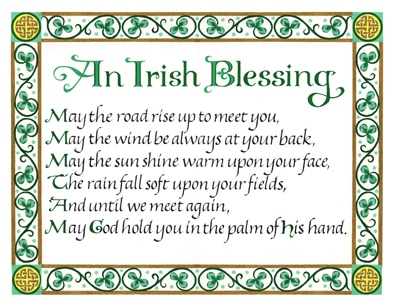I’ll never forget the first time I experienced receiving a benediction at the end of a worship service that was different than a closing prayer. The pastor walked to the front and said these words: “Now, I want to give you the good word. Please stand.” He kept his eyes open and with raised hands and palms facing outward, he began to pronounce a blessing on the entire congregation. Some people closed their eyes. Others extended their hands in front of them with palms facing upward as if they were actually receiving something tangible. A lady to the left of me started weeping, and with a quick glance I could see a gentle smile on her face as if to say, “These are tears of joy!”
At first, I was taken off guard. Even as a seasoned pastor and churchman, this was foreign to me. With every service I’d ever led, I simply offered a closing prayer at the end and dismissed the people. But this was different. This felt personal and powerful, and the words the pastor offered lingered with me for days afterwards.
I was so moved by the words of blessing I received that day that years ago, I made a decision to adopt this and use it whenever I close a service. Since then, I’ve had some amazing opportunities to offer a blessing upon pastors and lay people in various settings. I truly consider it to be one of the greatest privileges I have as a pastor.
As you know, the word benediction literally means “good word” or “good speaking.” While there are many wonderful activities that take place in a worship service, I believe the benediction is a final word that you can offer people which serves to give them an extra measure of hope, faith and inspiration as they depart that setting and enter fully again into the realities of a broken, fallen world.
It’s important to keep in mind, though, that this time is not intended for you to preach a second sermon or cover new information that you overlooked or forgot to cover during your actual message. For me, there are three keys to an effective benediction: it’s concise, memorable and most importantly it’s ultimately God’s word to the people, not yours.
When crafting a benediction, it helps for me to think about the big idea of the sermon. With that in mind, I try to use a thought or a verse that I’ve emphasized in the message that supports that idea and then reiterate it in such a way that it encourages people to accept these words as God’s words to them, not mine. This is huge. The last thing people need to sustain them during and beyond the benediction are my feeble words. Because these are God’s good word to them, they can trust them. They can lean into them far beyond the safety and security of that moment.
I suppose the benediction has become the exclamation point at the end of the service for me. It’s a way for God to shout or even whisper emphatically to people, “I love you!” “I’m here for you!” “I will see you through this difficult time.” “You can cry out to me because I’m listening.” “You can wait on me because I’m working.” “You can trust me because I’m faithful.” Those are always good words to rest in, whether you’re giving or receiving the benediction.
If you’re one who’s been offering these types of benedictions, you know the richness and the blessing this is to you and your people. If not, I’d encourage you to give it a try. While it may be a bit awkward at first, as it was for me, I believe in time you’ll discover a freshness that never grows stale as you get to stand and offer people words of life from the Father week after week.
Enjoy the journey as you continue being a blessing to so many along the way!



